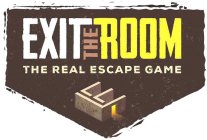At ExitTheRoom, we have witnessed literally thousands of escape room games being played. And though most of the competitors manage to emerge victorious, there are many times when help has been requested. Team members get suck on a single clue and after spending far too much time on it, finally admit defeat and press the help button. After being informed of a new way of looking at the problem, we can hear the players joyously shouting and whopping about a eureka moment, that somehow evaded their collective brains. More often than not, it was something so obvious yet it was completely overlooked as the players were "over-thinking" the problem. To help you play your next game, we've compiled a list of things you should keep an eye open for, as well as details you'll need to be aware of, in order to speed up the whole process. These tips and tricks should encourage you to look at problems from a new perspective. And they'll be of use whether you're playing in a real bricks and mortar escape room, or virtually. One point though...we are not going to tell you any solutions to the clues and puzzled found in our own escape room games.
Building Your Team
Try To Play With Friends Or Coworkers
Escape rooms are all about group communication. You're not going to be able to solve all the clues single-handedly. In fact, these types of exercises are specifically designed to encourage groups of people to work together as one homogeneous group. To that end, it really is a better experience if your among your peers or fiends. Having to play along with a family with small kids might ruin both your days. That's because every team will adjust to each others inputs and so create a unique playing style. And the last thing you want is anything that will impede this new stream-lined approach to problem solving. So, we strongly suggest that you steer well clear of public rooms and only book private escape rooms.
Play With Fewer Than The Maximum Team Size
This applies to both online and off line games. With real physical escape room games, there are going to be limitations of space within each room. So you want to be comfortable. When you book, you should make a point to ask, just how full each room will feel if the maximum number of players are taking part. Keep in mind, that as a business, the rooms are more likely to have a generous approach to player numbers. On the whole, whatever the number served up as the max, we would chop off 25 - 50%. One of the main reasons, apart from over-crowding, is that nothing is more boring than not having enough puzzles for everyone involved. Paying for something and having a less than stellar experience is going to leave a sour taste.
Work Together
Don't Try And Solve Everything
When a team of players enters an escape room for the first time, it's interesting to see how they split up and start covering different parts of the room. On the whole, once an individual has settled on their particular area, then the thinking/looking/searching starts. Silence descends as all these little grey cells are put to use. But so much time is taken by the reluctance of some players to admit defeat and recruit someone else to help or swap positions. Many of the puzzles will require different approaches, with some needing more spacial ways of looking at things, whereas other operate on simple logic. So the more eyes fall on a clue, the greater the possibility of it being solved. Keep in mind, that if many of you are struggling with a particular clue, then the chances are you are all missing a vital solution or haven't yet collected all the required information.
Please Listen To Your Teammates
Once you're in the room, you've nothing to lose by trying absolutely everything, no matter how hare-brained it might appear. So,if a member of your team has a bonkers idea, don't be dismissive. Jump up and try it out. Learning through failure is a thing! The more ideas you can try, then the greater the possibility of final success.
Shout Out Loudly Your Discoveries
Again, this is all about communication. Escape rooms can quickly become chaotic, with everyone trying to solve the puzzles in their area. But, as we all know only too well, all of these clues and solutions are tied together. As the game is won on speed, that is how fast the clues are solved, then it's imperative that any new information is broadcast as quickly and clearly as possible, as that particular clue might be exactly the thing another team player was looking for, or needed in order to proceed. The correlating of separate things, that actually belong together, be they codes and keys, or numbers and locks or patterns and templates, is how games are won or lost.
Work On New Task
For maximum efficiency, you all want to be working on your own puzzles. Keep in mind, that on many occasions, puzzles will be "left for later" if they appear too hard at first glance. It's easy for these to be forgotten. But the solution to every puzzle is of equal importance to the overall game result.
Don’t All Crowd Around The Same Puzzle
Here's the thing, with the clock mercilessly ticking down, it's important that everyone is occupied looking for solutions. That means no standing around watching others trying to solve their puzzles. Teams should spread out and set to work on different puzzles, as this is going to be the most efficient means of the use of your limited time. Obviously, as the number of solved puzzles gets reduced down, then everyone can pile in and help.




